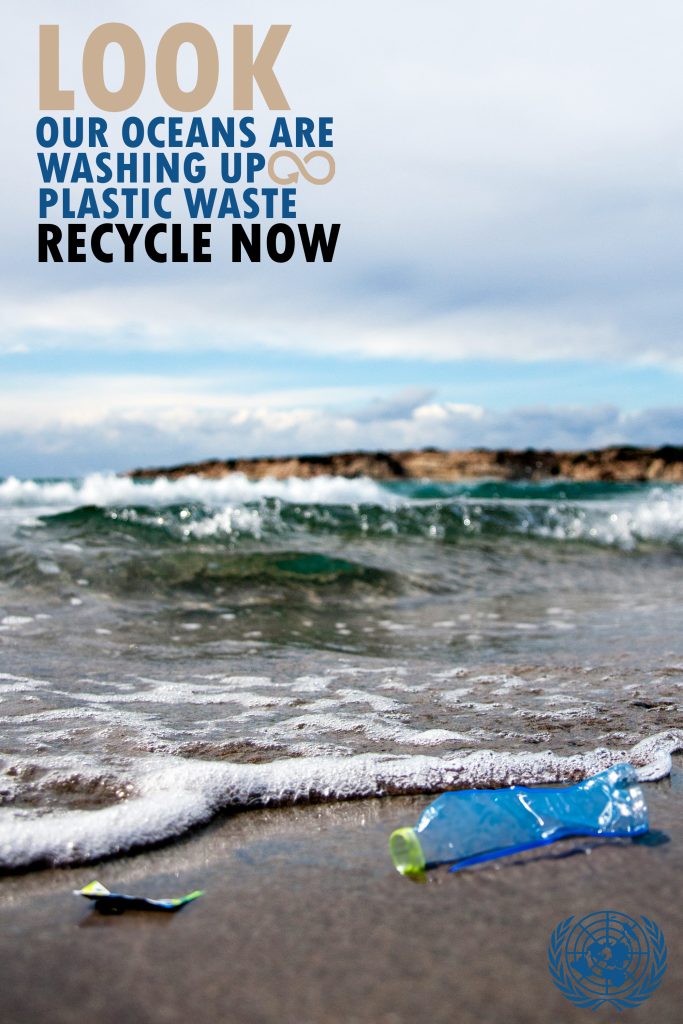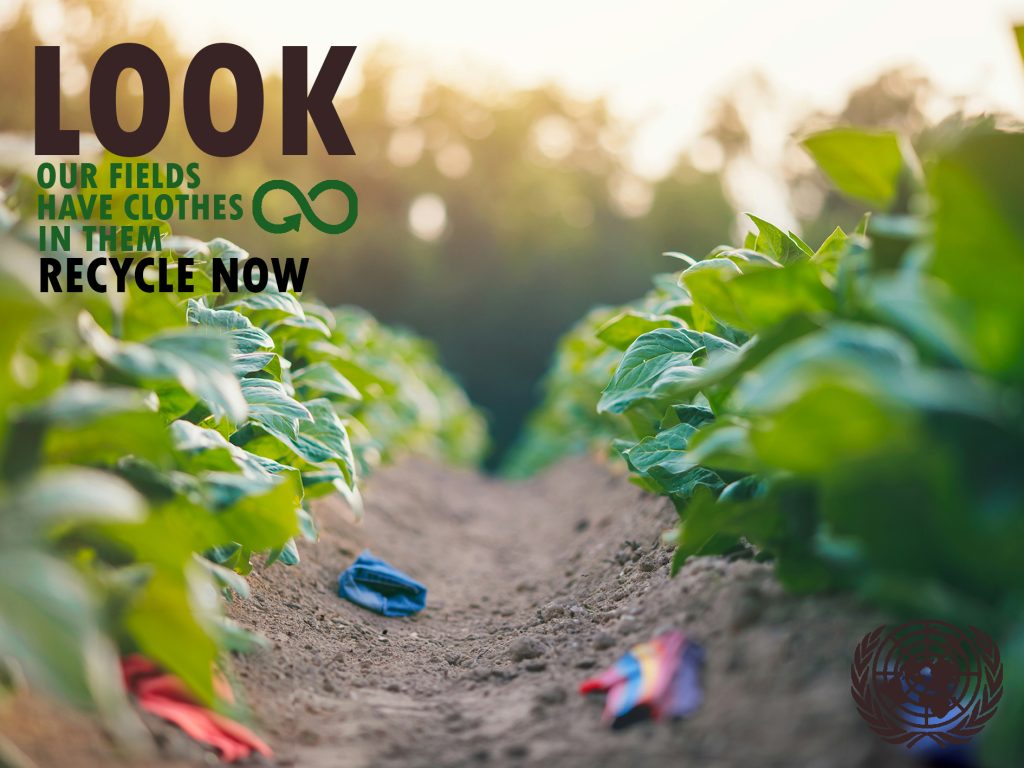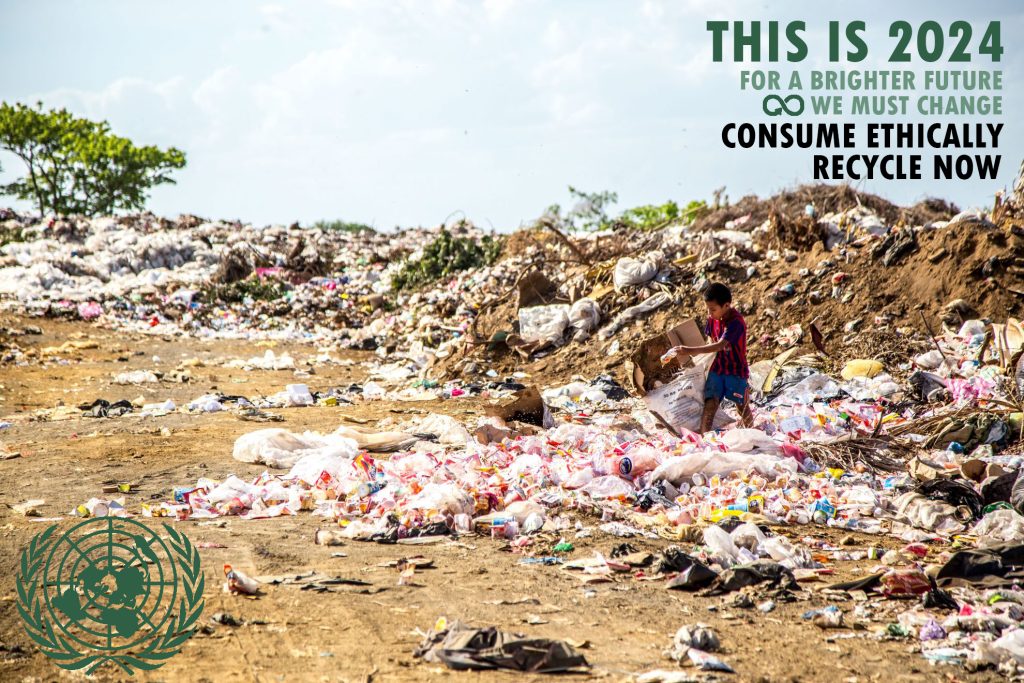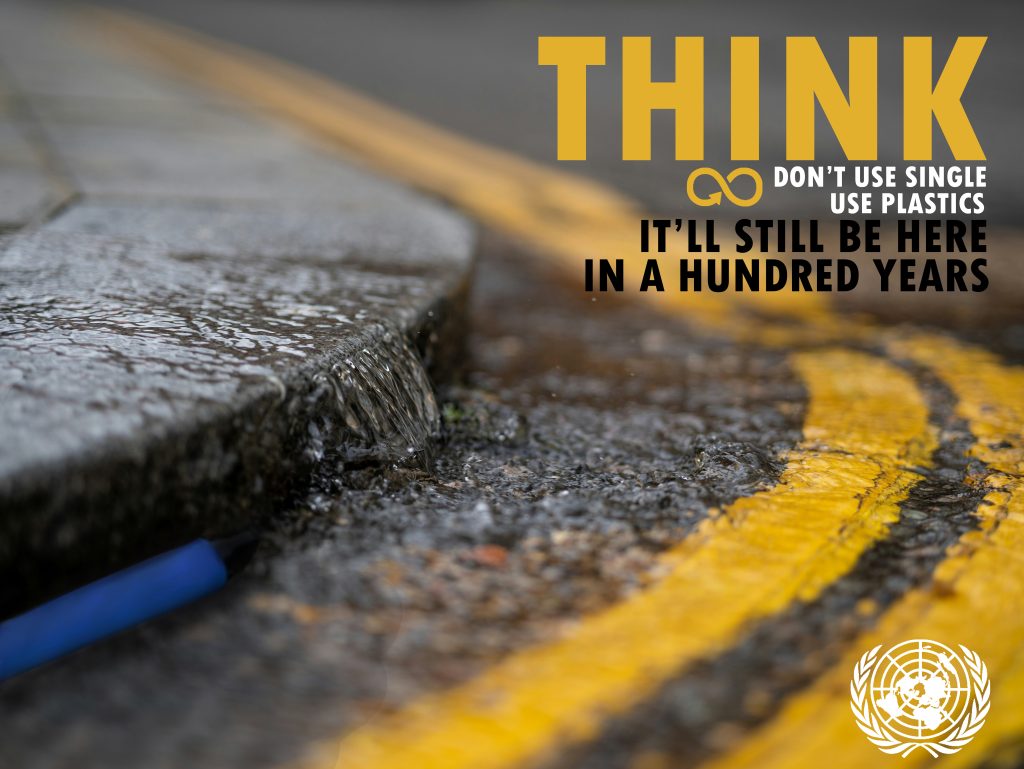SDG12

All of these artefacts has been produced around the 12th SDG goal on Sustainable Development and production: Ensure sustainable consumption and production patterns, especially on 12.4 and 12.5: chemicals waste management and waste reduction. Our main artefact is the report recommendation for the future, which is focused on global waste recycling and is meant to be a call to action to achieve environmental sustainability in 2024. The three other artefacts follows this theme but goes deeper, exploring different areas and issues in recycling, especially plastic recycling. The video vox pop gives an insight into habits and how the population feels about recycling, it also revealed the reaction of people after hearing about the CCI report on unsustainability of plastic recycling to the masses. The set of posters are raising awareness, but also are a call to action to encourage people to make conscious choices and adopt new sustainable consumption habits. The social media campaign is focused on how single-use plastic (plastic bags, plastic bottles, packaging…) is damaging the planet, it encourages individuals and businesses to reduce plastic waste and adopt a more ethical and responsible consumption.
Video
Campaign




Report
“Embracing Recycling for a Sustainable Future: A Call to Action”
Introduction
In recent years, the global community has increasingly recognised the urgent need for sustainable solutions to environmental challenges, particularly in the area of waste management. In 2024, the world faces growing concerns about waste generation, resource depletion and pollution, underlining the critical importance of advancing recycling practices to achieve environmental sustainability. Indeed, according to the United Nations Environment Programme (UNEP), global waste generation is expected to increase by 70% by 2050 if current trends continue (United Nations Environment Programme 2019). As we stand at a pivotal moment in history, the urgency of addressing environmental challenges has never been more apparent. In the face of escalating waste generation, resource depletion, and climate change, recycling emerges as a critical solution to mitigate the impacts of unsustainable consumption patterns and pave the way for a more sustainable future. This report serves as a call to action, urging society to embrace recycling as a fundamental pillar of environmental preservation and sustainable development. Furthermore, the Ellen MacArthur Foundation reports that only 9% of the world’s plastic waste has ever been recycled, highlighting the pressing need for concerted action to address plastic pollution and waste management challenges.
Current challenges facing recycling
In 2024, recycling faces a number of challenges that hinder its effectiveness as a waste management solution. In many regions, particularly in the UK, inadequate infrastructure, inconsistent recycling programmes and limited public awareness all contribute to low recycling rates and inefficient use of resources. In addition, contamination of recyclable materials, inadequate sorting facilities and reliance on single-use plastics exacerbate the difficulties facing recycling efforts in the UK and worldwide.
The importance of sustainable recycling practices
Recycling plays an essential role in promoting responsible consumption and production, as outlined in the United Nations’ Sustainable Development Goal 12 (SDG 12). By diverting waste from landfills, conserving natural resources and reducing greenhouse gas emissions, recycling helps to preserve the environment and mitigate the negative effects of unsustainable consumption patterns. Recycling also promotes economic growth, job creation and innovation, opening up new prospects for sustainable development and green technologies.
Recommendations for the future
Given the pressing need to address environmental challenges and advance recycling practices, this report would like to integrate the following recommendations into our daily lives in order to address emerging issues in our society:
Invest in recycling infrastructure:
Allocate funds to the development and modernisation of recycling infrastructure, including investment in advanced sorting technologies, materials recovery facilities and waste-to-energy plants. The European Environment Agency (EEA) states that countries with robust recycling infrastructure often achieve higher recycling rates, highlighting the importance of investing in infrastructure to support recycling efforts.
Expanding access to recycling facilities and services, particularly in underserved communities and rural areas, is necessary to ensure equitable participation in recycling programmes.
Promoting the principles of the circular economy:
Adopt circular economy principles that prioritise resource efficiency, waste reduction and product lifecycle management. EPR programs incentivise product design for recyclability and promote circular economy principles, contributing to waste reduction and resource conservation.
Encourage companies to adopt circular design principles, such as designing durable, repairable and recyclable products, to minimise waste generation and promote resource conservation.
Education and public awareness campaigns:
It is mandatory to promote recycling education and awareness. Indeed, launching comprehensive education and awareness campaigns would help inform individuals, communities, and businesses about the importance of recycling and the environmental benefits it offers. According to the World Bank, increasing recycling rates could reduce greenhouse gas emissions by up to 4 billion metric tons annually by 2050, highlighting the significant environmental impact of recycling initiatives. By launching extensive public education and awareness campaigns to promote recycling knowledge, it would foster a culture of environmental stewardship.
It would be important to engage schools, universities, community organisations and businesses in educational initiatives that emphasise the importance of recycling and sustainable consumption practices.
Collaborative partnerships:
Another measure would be to foster collaborative partnerships between governments, businesses, NGOs and academia to coordinate efforts and share best practices in recycling and waste management. For example, multi-stakeholder platforms and forums for dialogue and knowledge exchange should be set up to facilitate collaboration on innovative recycling solutions and policy frameworks. According to the Global Recycling Foundation, recycling one ton of paper saves 17 trees, 7,000 gallons of water, and 4,100 kilowatt-hours of electricity, highlighting the economic and environmental benefits of recycling partnerships.
Technological innovation:
Finally, investing in the research and development of innovative recycling technologies, such as advanced sorting robots, chemical recycling processes, and biodegradable materials, would undoubtedly be a turning point for progress towards a more responsible society.
As well as supporting start-ups and entrepreneurs working on revolutionary solutions to the challenges of recycling, by providing funding, mentoring and incubation support.
Conclusion
The European Environment Agency (EEA) states that recycling rates vary widely across countries, with some European countries achieving recycling rates above 60%, while others struggle to reach 10%.
As we face the daunting challenges of waste management and environmental degradation, it is imperative that we prioritise sustainable recycling practices as a cornerstone of environmental preservation and sustainable development.
By implementing the recommendations outlined in this report and fostering a culture of recycling and environmental stewardship, we can pave the way for a more resilient, resource-efficient, and environmentally sustainable future for future generations.
Together, let us seize this opportunity to turn the tide on waste and pollution and embark on a transformative journey towards a world where recycling is not just a choice but a collective responsibility and a beacon of hope for a better tomorrow.
Image



